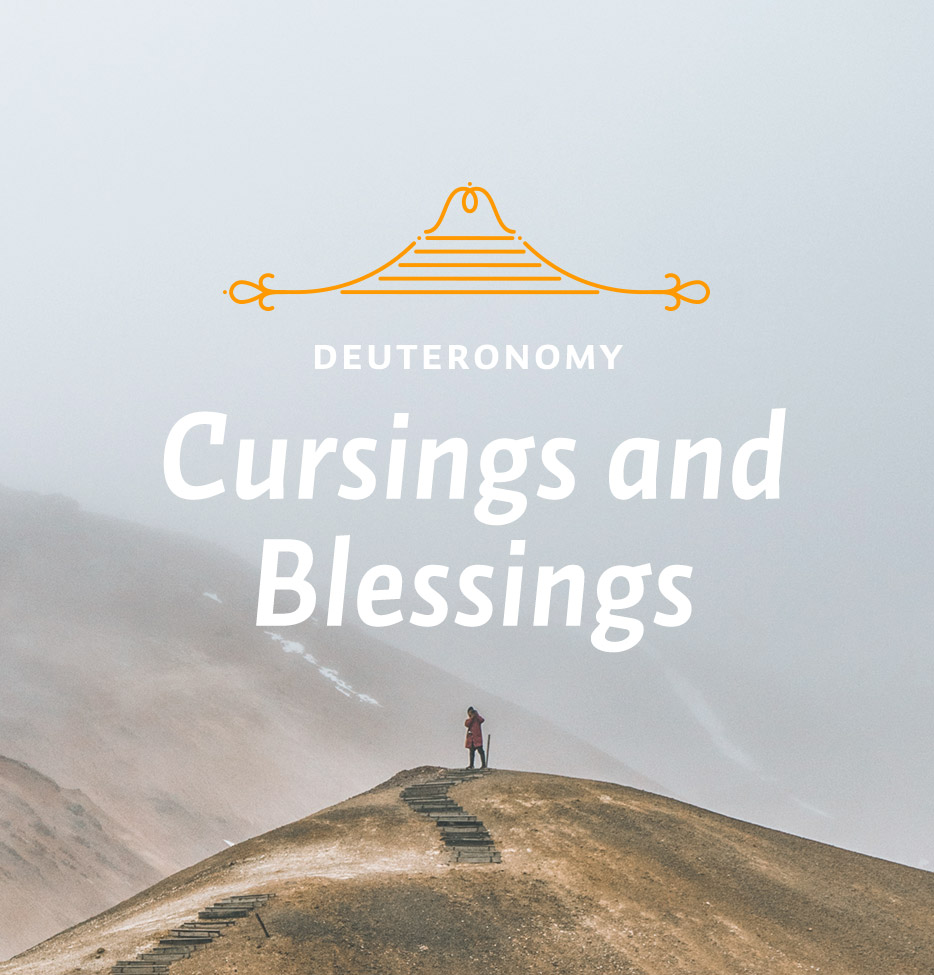After being told that cursings will come if the people break the law of God, Moses now elaborates on this. There is nothing quite like this anywhere else in the Bible. The comprehensive scope of the curses in Deuteronomy 28:16-19 sets the stage for the curses that are going to follow in the rest of the chapter: “You will be cursed in the city and cursed in the country. Your basket and your kneading trough will be cursed. The fruit of your womb will be cursed and the crops of your land, and the calves of your herds and the lambs of your flock. You will be cursed when you come in and cursed when you go out.” It doesn’t make any difference what the people do or where they go. If they don’t obey the law of God their lives are going to become one continuous, overwhelming, devastating curse.
Can it get any worse? It can. Moses goes on to explain in a little more detail. Nothing the people do will ever prosper. They will lose their health, their homes, their vineyards, their cattle, their wives, their children, and they won’t be able to do anything about it. Even their land is going to be overrun by their enemies. Why? “Because you did not serve the LORD your God joyfully and gladly in the time of prosperity” (v. 47). They are even going to be carried away into exile from the land that God had given them. In the time of siege, particularly the siege of Jerusalem, the people are going to resort to cannibalism, and even worse (v. 53; cf. 2 Kings 6:24-31; Lam. 2:20; 4:10). God says this is what is going to happen if the people go their own way.
Now that is bad news, but none of it needs to happen. These curses don’t have to come upon them because they can go in God’s way. If they go in His way they are going to be blessed just as abundantly—or more abundantly—as they would have been cursed if they had disobeyed Him.
The blessings are given in Deuteronomy 28:1-14. Comparing the blessings with the curses, you notice that they are intended to be the exact opposite. In the Hebrew text, both of those sections of blessings and curses are very short, terse pieces of poetry. They are the kind of thing that would be very easily memorized. Moses wanted to give it to them in a form that wouldn’t escape their minds.
It really does matter how you live. Believers are saved by grace, and God is very gracious to us, even when we sin. Nevertheless, He holds the way of obedience before us and says that obedience is the way of blessing and disobedience is the way of judgment.
The third point is to urge the people to obey. Moses was a great preacher, and he rises to heights of eloquence here in Deuteronomy 29-30. Even after he spelled things out as sharply as he does in Deuteronomy 27-28, he goes on to urge his applications on the people even more. Moses reminds the people of the past, describes what entering into the covenant really means, gives an additional specific warning of disasters to come, and finally promises prosperity in the future, if, after having fallen away, the people repent of their sins and come back to the Lord they have deserted.
Moses’ reminder of the past is found in Deuteronomy 29:1-8. We have seen this before. In chapters 1-3, he reviewed the history of the people. The lesson then was that when the people obeyed God, they had victory over their enemies, and when they disobeyed God, they didn’t have victory over their enemies. Blessing followed obedience, and defeat followed disobedience. Deuteronomy 9 makes the same point, and here it is again in chapter 29. Though it is told in only eight verses, it is comprehensive. It begins back with the people in Egypt and the defeat of Pharaoh, and takes them to the division of the Transjordan territories.






